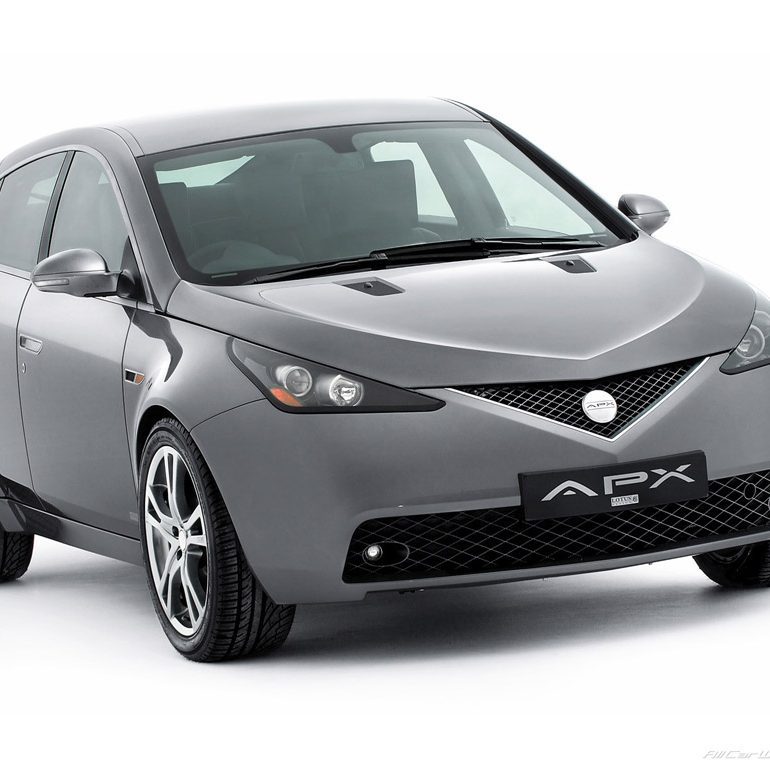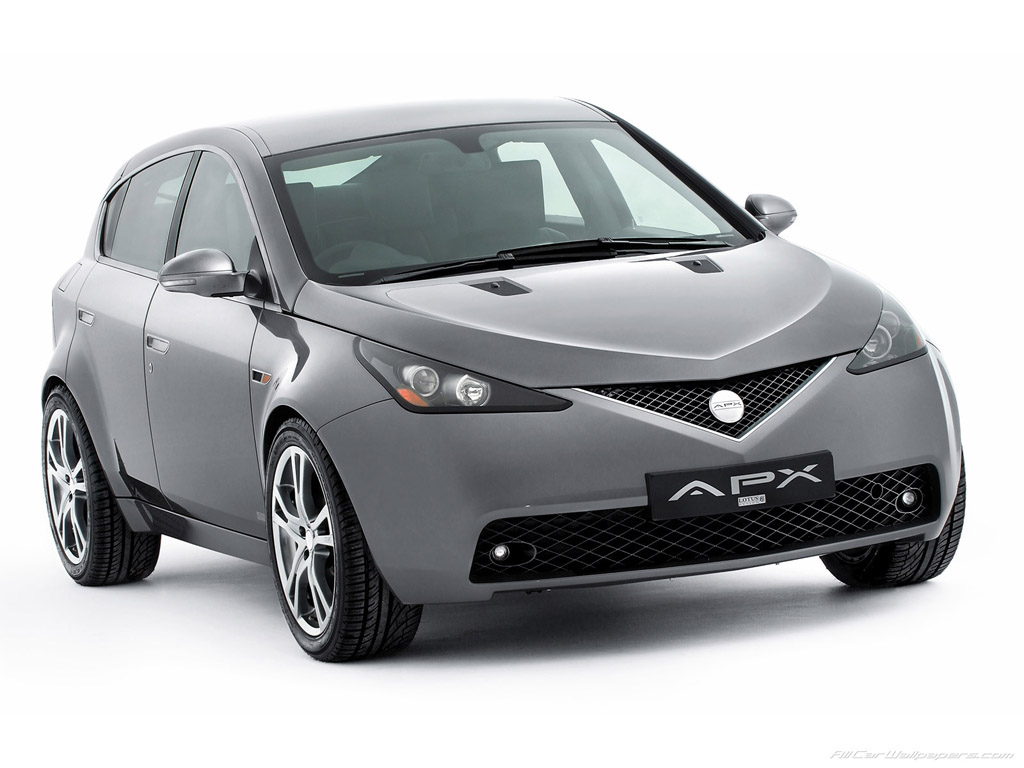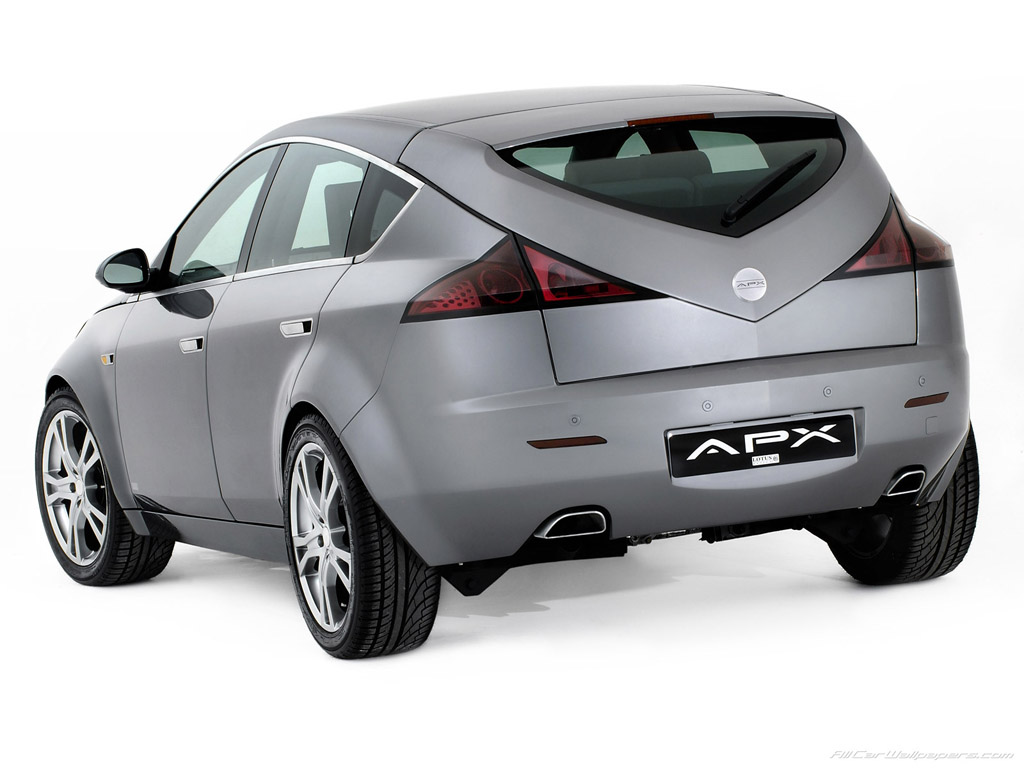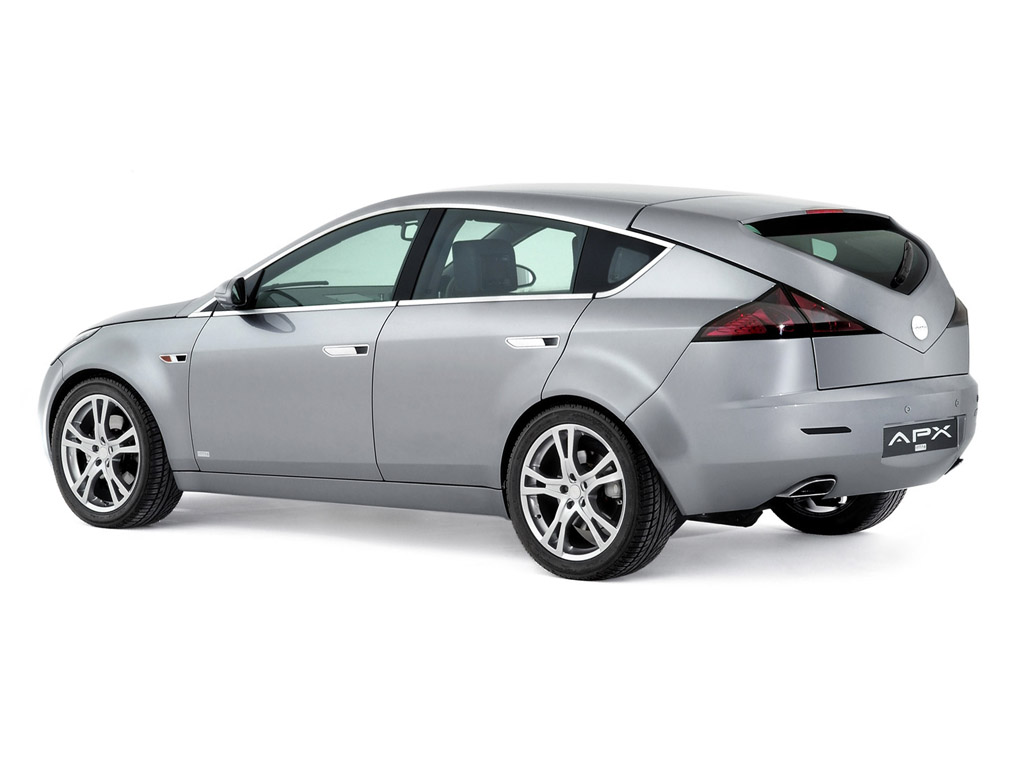2006 Lotus Engineering APX Concept
APX by Lotus Engineering is the first example of a complete vehicle built on the innovative Versatile Vehicle Architecture (VVA). It is a 7-seater, four-wheel drive, crossover vehicle with a front mounted 300 hp supercharged V6 petrol engine. Weighing in at just 1570 kg and with a power to weight ratio of 191 hp per tonne, the APX has sportscar like performance of 5.4 seconds to 100 km/h (5.0 seconds to 60 mph) before reaching a top speed of 245 km/h (152 mph).
These performance figures are as good as the highest performing 4×4 Crossover vehicles from other brands with up to 195 hp per tonne. Crucially though, whereas those vehicles need higher output engines to compensate for heavy weight, APX does not. Combined fuel consumption for APX is estimated to be 8.7 litres / 100 km (or 32 mpg) – impressive on its own and more so when compared to its production rivals which often consume more than 13 litres per 100 km (22 mpg).
APX is manufactured predominantly from aluminium in the form of high-pressure die-cast corner nodes, stampings and extrusions. It uses advanced assembly techniques, including adhesive bonding, self-piercing rivets and flow-drill screws for construction. Lotus has optimised the use of these technologies thus significantly reducing the number of mechanical fixings within the monocoque structure.
Not just a Lotus Engineering concept, but a feasible prototype close to production, APX is not a concept indicating a strategic direction of Lotus Cars; it is, however, a brilliant demonstration of VVA and the skills of the team from Lotus Engineering into what is regarded as the future of niche vehicle manufacture. APX is production feasible as all the components can be made cost effectively and in high niche volume (up to around 30,000 per year).
Related: Lotus Race Car List / Lotus Current Lineup / All Lotus Models / Lotus News
APX is powered by a V6 engine has been designed by Lotus Engineering’s powertrain division. The directive for Project NEF was to produce a high performance prototype engine without the need to resort to exotic materials or manufacturing technology, allowing manufacture around the world.
APX’s engine is a supercharged 3 litre (2996 cc, Bore: 88 mm, stroke: 82.1 mm) V6 DOHC engine, mounted longitudinally in the front of the vehicle. Performance of the engine is maximum power of 224 kW (300 hp) at 6250 rpm and a torque of 360 Nm at 4500 rpm. Like the vehicle, the engine not just a Lotus Engineering concept, but a feasible prototype close to production, however it is not a concept indicating a strategic powertrain direction of Lotus Cars. The engine is production feasible and it is expected that the commercialisation of this engine will be of interest to the automotive clients of Lotus Engineering.
Simon Wood, Director of Lotus Engineering explains the rationale behind building APX: the first production car from Lotus to use the Versatile Vehicle Architecture will be the new mid engine super sportscar, which will go into production in 2008. Lotus Cars customers eagerly await this vehicle that will be a class-leading and phenomenally high performing car. However, we wanted to demonstrate the true versatility of the VVA technology, and what better way than to build a type of car that no one would expect from Lotus.
Story by Lotus Engineering, edited by Supercars.net
Pictures
Specs & Performance
| submitted by | Richard Owen |
| engine | Lotud Engineering V6 |
| position | Front, Longitudinal |
| aspiration | Rootes-Type Supercharger |
| valvetrain | DOHC |
| displacement | 2996 cc / 182.8 in³ |
| bore | 88 mm / 3.46 in |
| stroke | 82.1 mm / 3.23 in |
| power | 223.7 kw / 300 bhp @ 6250 rpm |
| specific output | 100.13 bhp per litre |
| bhp/weight | 191.08 bhp per tonne |
| torque | 360 nm / 265.5 ft lbs @ 4500 rpm |
| body / frame | Aluminum BOdy over Riv-Bonded Aluminium Understructure |
| driven wheels | 4WD |
| f brake size | mm / in |
| r brake size | mm / in |
| curb weight | 1570 kg / 3461 lbs |
| wheelbase | 2700 mm / 106.3 in |
| front track | 1554 mm / 61.2 in |
| rear track | 1556 mm / 61.3 in |
| length | 4697 mm / 184.9 in |
| width | 1852 mm / 72.9 in |
| gear ratios | :1 |
| top speed | ~244.6 kph / 152 mph |
| 0 – 60 mph | ~5.0 seconds |







